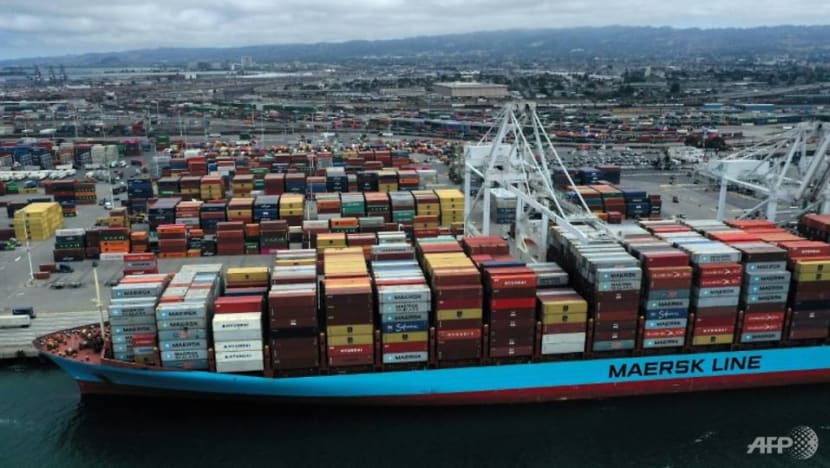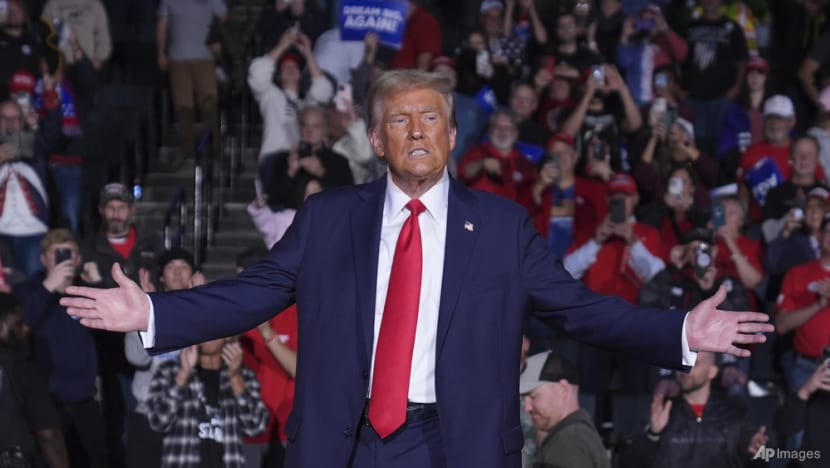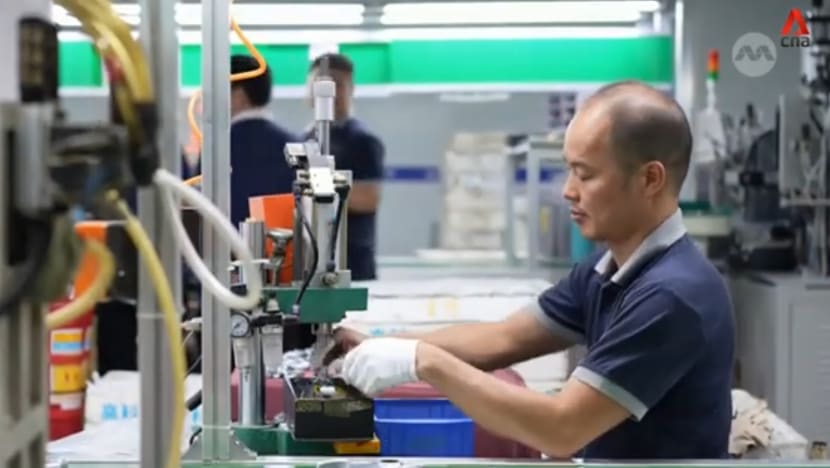How are firms dealing with US import tariffs on Chinese goods that could persist?
Washington will continue to act against Beijing’s trade practices, no matter who wins the presidential race on Tuesday (Nov 5), experts said.


This audio is generated by an AI tool.
HUIZHOU, Guangdong: Singaporean digital door lock firm Igloo has been manufacturing its products in China's Guangdong province since 2017.
The company chose the country as a base due to its expertise in hardware product development.
However, against the backdrop of a trade war between China and the United States that has been ongoing since 2018, Igloo has looked elsewhere to make its chipsets - crucial components for computers.
“We intentionally chose the chipset not to be China-based because of ongoing US tariff issues,” its chief operating officer Steven He told CNA.
While Igloo is not currently affected by import duties, it is wary that it may be in the future.
In May, the US said it would increase tariffs on Chinese semiconductors from 25 per cent to 50 per cent by 2025. This was among a slew of US tariff hikes meant to protect domestic industries.
Other tariffs - including a 100 per cent duty on Chinese electric vehicles, 50 per cent on solar cells, and 25 per cent on steel, aluminium, EV batteries and key minerals - went into effect on Sep 27.
With the trade war showing no signs of ending, Igloo has shifted part of its operations to Vietnam to get around such obstacles.
“Most of our partners (in China) are also serving the US market … When they started to shift the operations, we tagged along with their factory (to) move to Vietnam,” said Mr He.
THE TRADE WAR
The trade war has spanned two American administrations and is set to bleed well into the next.
The US has long accused China - widely viewed as its greatest geopolitical threat and economic rival - of unfair trade practices.
The US imported US$427 billion in goods from China in 2023 and exported US$148 billion to the world's second largest economy, a trade gap that has persisted for decades.
Washington will continue to act against Beijing’s trade practices, no matter who wins the presidential race on Tuesday (Nov 5), experts said.
Under a Trump administration, however, measures are likely to be more aggressive and abrupt, they added.
Trump has announced that if reelected, he will impose a tariff of 60 per cent or more on Chinese imports into the US. He also plans to impose 10 to 20 per cent duties across the board on all imports.

A survey by non-governmental organisation (NGO) The Conference Board released in June found that more than half of China-based CEOs, mostly from US and European multinational companies, think relations between Washington and Beijing will worsen over the next three years.
The same survey found that 58 per cent of respondents expect investments or operations to shift away from China to India in the next two years.
Foreign direct investment in China is slowing, but companies are reluctant to exit the Chinese market, said Mr Alfredo Montufar-Helu, who heads the China Center at The Conference Board.
Instead, some have begun to tap into the domestic market, he added.
“Over 70 per cent of them told us that they are actually investing more in China for China localisation,” he said.
He noted that the country has emerged as a viable option for other nations looking to not just produce goods, but also create, design and innovate them.
STAYING IN CHINA
Technology is set to be a point of tension in the geopolitical landscape, given that it will be the main driver of economic growth in the next decade, said Mr Montufar-Helu.
“In many ways, it will define the power of a given country. So what we're seeing right now is that those key technologies that would impact the economic power of an economy are being the subject of some of these restrictions,” he said.
Despite the shaky trade climate, some continue to have faith that they can prevail in China.

For instance, having spent almost a decade plugged into a mature supply chain in China, Igloo plans to continue to base most of its operations there.
“The supply chain landscape usually takes years to build up to its quality and also maturity, so I think we still continue to balance by tapping the China resources, as well as to continue manufacturing our own products overseas.” said Mr He.
Mr Liu Ning, whose manufacturing firm Bolan Intelligent Technology Co - Igloo's Chinese partner - has worked closely with US companies for more than 20 years, similarly plans to stay in Guangdong's industrial city Huizhou.
Almost half of his firm’s business goes to the US, he said.
“I believe we’re inseparable. No matter who’s going to be president, I don’t think there will be a big impact,” he said.
“We have stable customers not just in the US, but also in Japan and Europe, so we are not worried.”





















